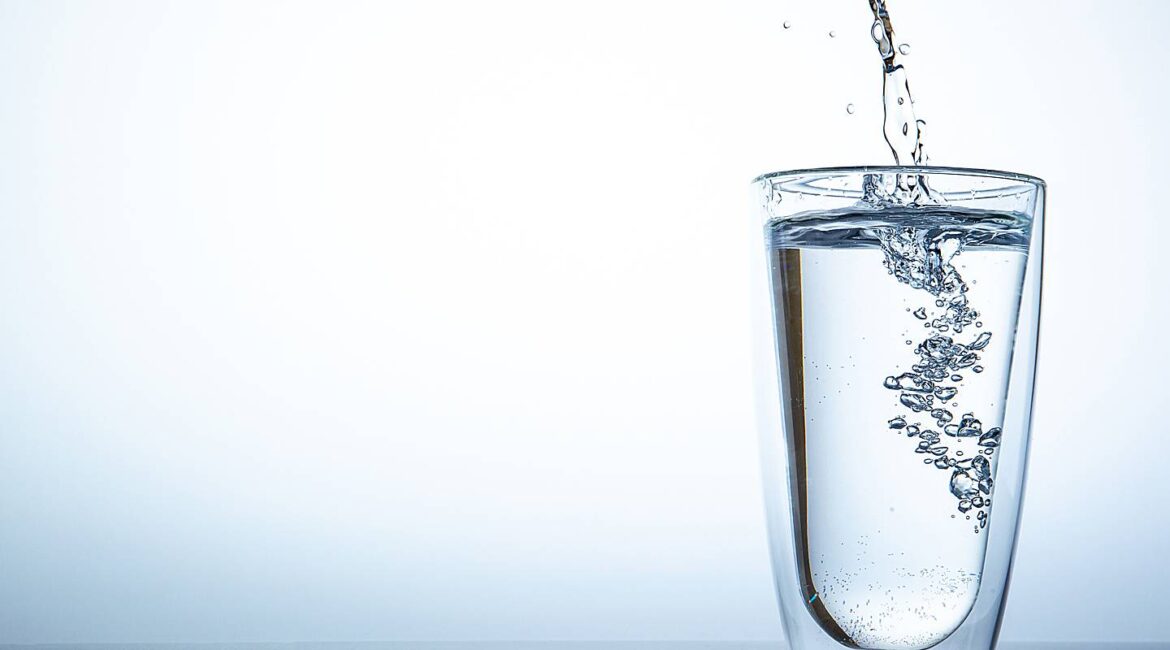Find out how drinking water can help your body and your cells!
Water may not be our most exciting and sweet beverage such as coffee, but you literally can’t live without it.
The human body consists of 70% water and our blood is 90% water.
Even hard substances like bones (20%) and teeth (5%) have some water.
Depending on your age, your body can be anywhere from 55% to 75%.
A baby is 75% while a very old person is 60% or less.
Obese people have less body of water than lean muscular people because fat cells are only 25% water while muscles are 75%.
Water is so vital to our survival that we cannot live without it. It is literally a “river of life” flowing inside us.
How much water do you need to drink?
Our sizes, activity, metabolism, diet, physical activity, and health are all factors that shows how much water do we need.
You should drink half your body weight in litres of water every day to provide your body with its MINIMUM water replacement requirements as long as you are reasonably fit.
Otherwise start by sipping the water and gradually build up.
The amount of water you drink needs to increase if you are active or outside in hot or humid weather.
To determine if you’re getting enough water in your day, you can try the urine colour test to evaluate how you’re doing on drinking up.
After going to the bathroom, look at the colour of your urine.
- If it is very pale yellow to light yellow, you’re well hydrated.
- Darker yellow is a sign of dehydration.
- Brown or cola-coloured urine is a medical emergency, and you should seek medical attention.
As the Mayo Clinic notes, the National Academies of Sciences, Engineering, and Medicine recommends that men consume 3.7 liters (15.5 cups) and women get 2.7 liters (11.5 cups) of fluids per day, which can come from water, beverages in general, and food (such as fruits and vegetables).
How to maintain a healthy percentage?
It is essential to drink enough water to support all functions of the body.
We get enough fluids from our food and beverages throughout the day.
The Centers for Disease and Prevention suggested that you should:
- Carrying a water bottle for easy access
- Choosing water instead of sugar – sweetened beverages
- Choosing water when eating a meal out
- Adding a wedge of lemon or lime to water to improve taste
- Add a wedge of lime or lemon to your water, this can help improve the taste and help you drink more water than you usually do
What are the functions of water?
Water plays a vital role in nearly every bodily function.
Water is essential for proper digestion, nutrient absorption and chemical reactions.
A hydrolytic role in all aspects of body metabolism – water-dependent chemical reactions (hydrolysis).
At the cell membrane, the osmotic flow of water through the membrane can generate “hydroelectric energy” (voltage) that is converted and stored in the energy pools in form of ATP and GTP – two vital energy systems.
Water also forms a particular structure, pattern and shape that seems to be employed as the “adhesive material” in the bondage of the cell architecture.
Like glue, it sticks the solid structure in the cell membrane together.
It develops the stickiness of “ice” at higher body temperature.
Products manufactured in the brain cells are transported on “waterways” to their destination in the nerve endings for use in the transmission of messages.
There seems to exist small waterways or micro streams along the length of nerves that “float” the packaged materials along “guidelines” called microtubules.
Proteins and the enzymes of the body function more efficiently in solutions of lower viscosity – this is true of all the receptors in the cell membranes.
Although is essential for proper circulation in the body, and flexibility of the blood vessels.
Water helps remove toxins (acidic waste) from the body, in particular from the digestive tract.
Water regulates your body’s temperature, imagine a car running without water in the radiator.
Consistent failure to drink enough water can lead to Chronic Cellular Dehydration.
This condition where the body’s cells do not get hydrated enough leaving them in a weakened state, and vulnerable to disease processes.
It weakens the body’s overall immune system and leads to chemical, nutritional and pH imbalances.
Dehydration can occur at any time of the year,not only during the summer months when it is hot.
The dryness that occurs during winter can dehydrate the body quicker than when it is hot, one of the main causes being central heating and a dry atmosphere in the home.
The other being not drinking enough water. Many diseases such as Cholera are caused primarily through dehydration.
Daily loss of Fluids
We need a constant supply of water because our bodies lose a substantial amount every day.
Studies have found that we lose from 8 to 10 cups of fluid a day through our sweat, urine and breath.
It is difficult for the body to get drinking water from any other source than water itself.
Soft drinks and alcohol steal tremendous amounts of water from the body, however, even other beverages such as coffee, milk and juice require water from the body to be properly digested.
Are there any factors that affect water requirements?
- Higher dietary intake of salt and sugar increase fluid requirements
- Higher intake of caffeine and alcohol increase fluid requirements
- Environmental temperature – Summer heat increases sweat production and water losses
- Activity – increased sweat production and resultant loss of body water.
You can read also about: Gallstones Natural Treatment



